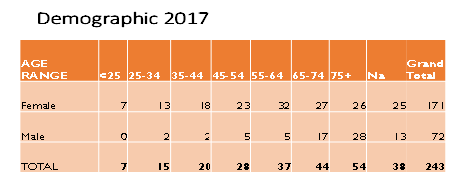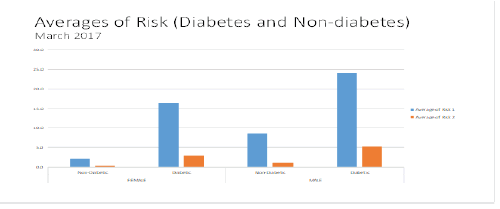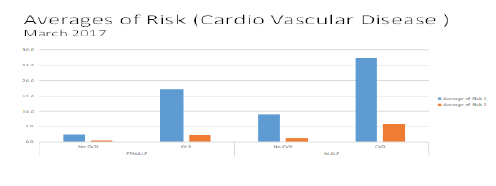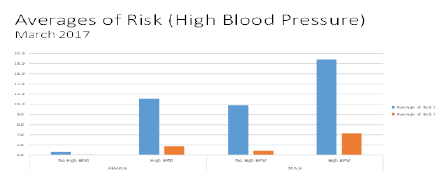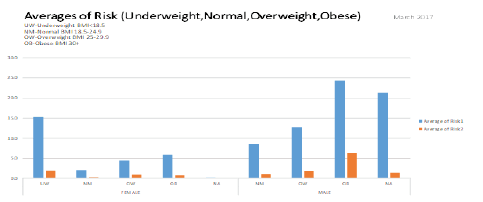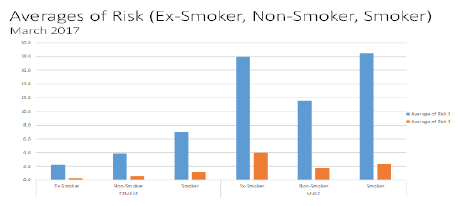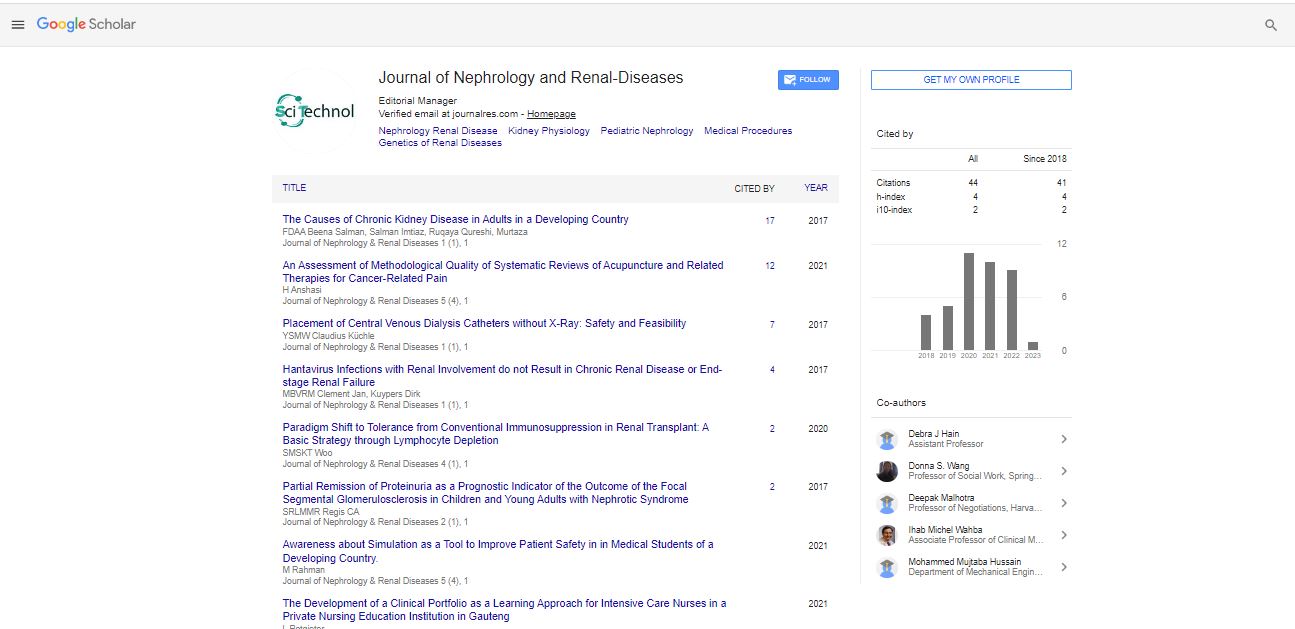Research Article, Jnrd Vol: 5 Issue: 1
Q Kidney Risk Calculator Useful Tool in Hospitals and Community
Alinda Sze Fung Chiu*Department of Nephrology, Queen’s University Belfast, Belfast, UK
*Corresponding Author : Alinda Sze Fung Chiu
Nephrologists, Department of
Nephrology, Queen’s University Belfast, Belfast, UK
Tel: +61 403073031
E-mail: alinda410@hotmail.com
Received: December 10, 2020 Accepted: December 28, 2020 Published: January 4, 2021JNRD
Citation: Fung Chiu AS (2020) Q Kidney Risk Calculator Useful Tool in Hospitals and Community. J Nephrol Ren Dis 5:1.
Abstract
World kidney day is held in March every year from 2015 to 2019
in the private hospitals based in Mornington Peninsula and Frankston
suburbs in Victoria, Australia
The population in Frankston is approximately 160000 and
the Mornington Peninsula has 170000. Interestingly 15 % of the
population consists of elderly above 65 years old.
The aim of this annual kidney event is to create awareness of
kidney health to the local community in addition to analyse the elderly
population (above 65 years old) here who made up 30% of the dialysis
population in these areas. We hope to detect patients with early kidney
disease and hence to delay the progression of chronic kidney disease
in patients in these suburbs. Hopefully this will help to reduce the
number of patients requiring dialysis or transplant in the future. This,
in return, will help to save money for dialysis program which takes up
a good proportion of hospital’s revenue.
Q kidney risk calculator was used to calculate the risk of
developing moderate and severe kidney disease over 5 years and also
the likelihood of requiring dialysis or transplant. The calculated value
is in percentage (maximum is 100 %). The Q kidney risk formula is
based on sex , age , ethnicity, smoking status, diabetes, heart failure,
peripheral vascular disease, high blood pressure requiring treatment,
rheumatoid arthritis, systemic lupus erythematosus, history of
suffering from heart attack, angina, stroke or transient ischemic attack,
history of having kidney stones and family history of kidney disease.
We calculated the body mass index, height and weight of each
participant on the event day. We also measure the blood pressure of
each person that consented to the Q kidney risk questionnaire.
A kidney health check was conducted over a day in two private
hospitals (Peninsula Private Hospital and Beleura Hospital) in 2017.
243 participants enrolled in this study. The study population was
mobile inpatients, members from the public and health workers
(nurses, doctors, allied health workers and administrative staff).
Method: A Q risk calculator was used to assess the risk of
developing moderate and severe chronic kidney disease (eGFR <
60 mls/min) and risk of end stage renal failure requiring dialysis or
kidney transplant over the next 5 years. All participants consented
prior to being involved in the study.
Keywords: Chronic Kidney Disease; Q Kidney;
Introduction
World kidney day is held in March every year from 2015 to 2019 in the private hospitals based in Mornington Peninsula and Frankston suburbs in Victoria, Australia
The population in Frankston is approximately 160000 and the Mornington Peninsula has 170000. Interestingly 15 % of the population consists of elderly above 65 years old.
The aim of this annual kidney event is to create awareness of kidney health to the local community in addition to analyse the elderly population (above 65 years old) here who made up 30% of the dialysis population in these areas. We hope to detect patients with early kidney disease and hence to delay the progression of chronic kidney disease in patients in these suburbs. Hopefully this will help to reduce the number of patients requiring dialysis or transplant in the future. This, in return, will help to save money for dialysis program which takes up a good proportion of hospital’s revenue.
Q kidney risk calculator was used to calculate the risk of developing moderate and severe kidney disease over 5 years and also the likelihood of requiring dialysis or transplant. The calculated value is in percentage (maximum is 100 %). The Q kidney risk formula is based on sex , age , ethnicity, smoking status, diabetes, heart failure, peripheral vascular disease, high blood pressure requiring treatment, rheumatoid arthritis, systemic lupus erythematosus, history of suffering from heart attack, angina, stroke or transient ischemic attack, history of having kidney stones and family history of kidney disease.
We calculated the body mass index, height and weight of each participant on the event day. We also measure the blood pressure of each person that consented to the Q kidney risk questionnaire.
A kidney health check was conducted over a day in two private hospitals (Peninsula Private Hospital and Beleura Hospital) in 2017. 243 participants enrolled in this study. The study population was mobile inpatients, members from the public and health workers (nurses, doctors, allied health workers and administrative staff).
Method: A Q risk calculator was used to assess the risk of developing moderate and severe chronic kidney disease (eGFR < 60 mls/min) and risk of end stage renal failure requiring dialysis or kidney transplant over the next 5 years. All participants consented prior to being involved in the study.
Results
The majority was aged 65 to 75 years old (18% of study group) and above 75 years old (22% of study participants). This represents an aged population. 18% of the participants were diabetic, 18% had cardiovascular disease, 37% were hypertensive, 5% were smokers, 28% of the participants were overweight and obesity was seen in 25% (Figure 1).
Diabetic females are five times higher risk than non-diabetic females in developing moderate and severe chronic kidney disease (stage 3 and 4). Male diabetics are three times more at risk than nondiabetic men in developing moderate to severe chronic kidney disease. However diabetic men are five times higher risk than normoglycaemic men in progressing into end stage renal failure (Figure 2).
Females with cardiovascular disease are five times higher risk than women with no cardiovascular disease in developing moderate to severe chronic kidney disease (Figure 3).
Men with cardioavascular disease are three times higher risk than men with no cardiovascular disease in developing moderate to severe chronic kidney disease
Hypertensive women are ten times higher risk than normotensive women in developing moderate to severe chronic kidney disease (Figure 4).
Interestingly hypertensive men are four times higher risk than normotensive male in developing end stage renal failure.
Obese men are three times higher risk than normal weight men in developing moderate to severe chronic kidney disease. Underweight females are three times at risk than normal weight females in developing moderate and severe chronic kidney disease (Figure 5).
Male smokers and ex male smokers are more likely to develop moderate and severe kidney disease compared to non-male smoker. Female smokers also have higher risk of having moderate and severe kidney disease compared to non-female smokers (Figure 6).
Summary:
Risk questionnaire is a quick and easy tool to assess risk of developing moderate and severe chronic kidney disease and risk of developing end stage renal disease requiring dialysis or renal transplant.
Participants with diabetes, hypertension and cardiovascular disease have a higher risk of developing moderate and severe chronic kidney disease over the next 5 years
Overweight ( body mass index 25 to 29.99 ), obese patients ( body mass index more than 30) and interestingly underweight females with body mass index 18.5 or less have a higher risk of developing moderate and severe chronic kidney disease . We also noted that male smokers and female smokers are more likely to develop moderate and severe kidney disease compared to non smoker.
Conflict of Interest:
No conflict of Interest
References
- Hippisley-Cox, J, Coupland C (2010) Predicting the risk of chronic kidney disease in men and women in England and Wales: Prospective derivation and external validation of the QKi02dney® Scores. BMC Fam Pract 11: 49.
- Collins GS, Altman D (2012) Predicting the risk of chronic kidney disease in the UK: An evaluation of QKidney scores using a primary care database. Br J Gen Pract 62: 597.
- Hippisley-Cox J, Coupland C, Brindle P (2014) The performance of seven Q prediction risk scores in an independent external sample of patients from general practice: A validation study. BMJ Open 4: 358.
- A predictive model for progression of chronic kidney disease to kidney failure. JAMA, 2011 Apr 20; 305(15):1553-9.
- Robert G. Nelson, Morgan E. Grams, Shoshana H. Ballew (2019) Development of Risk Prediction Equations for Incident Chronic Kidney Disease. JAMA, 322 (21)
- Navdeep Tangri, Morgan E. Grams, Andrew S. Levey (2016) Multinational Assessment of Accuracy of Equations for Predicting Risk of Kidney Failure: A Meta-analysis. JAMA 315 (2):164-74
 Spanish
Spanish  Chinese
Chinese  Russian
Russian  German
German  French
French  Japanese
Japanese  Portuguese
Portuguese  Hindi
Hindi 